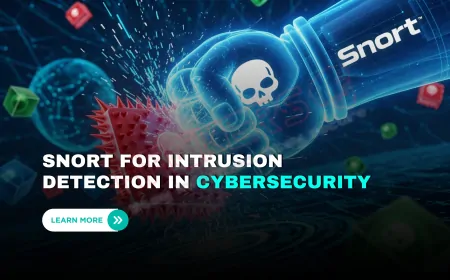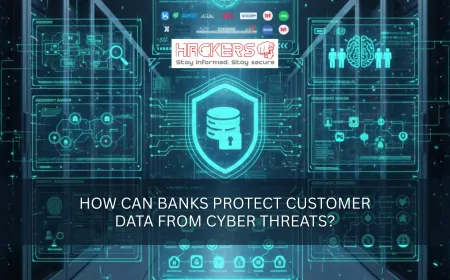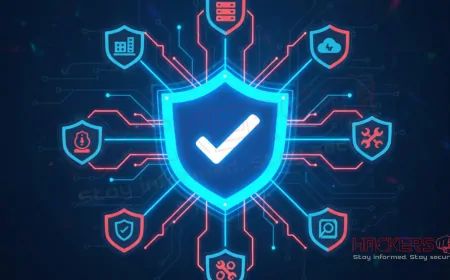How Do Financial and Healthcare Cybersecurity Laws Differ?
In today’s digital world, protecting sensitive data is more critical than ever. Whether it’s your bank account details or your medical records, organizations handling this information face strict rules to keep it safe. But not all industries follow the same playbook. Financial and healthcare sectors, in particular, operate under distinct cybersecurity laws tailored to their unique needs. If you’ve ever wondered why banks and hospitals have different approaches to safeguarding your data, you’re in the right place. This blog breaks down the key differences between financial and healthcare cybersecurity laws in a way that’s easy to understand, even if you’re new to the topic. Let’s dive in and explore how these regulations work, why they exist, and what they mean for you.

Table of Contents
- Overview of Cybersecurity Laws
- Financial Cybersecurity Laws
- Healthcare Cybersecurity Laws
- Key Differences Between Financial and Healthcare Cybersecurity Laws
- Challenges in Compliance
- Conclusion
- Frequently Asked Questions (FAQs)
Overview of Cybersecurity Laws
Cybersecurity laws are rules set by governments or regulatory bodies to protect sensitive data from breaches, theft, or misuse. These laws ensure that organizations whether banks, hospitals, or other entities take steps to secure personal information like your name, address, or health details. In both finance and healthcare, the stakes are high. A data breach could mean stolen money, compromised medical records, or even identity theft.
While both sectors aim to protect data, their laws differ because of the type of information they handle and the risks involved. Financial laws focus on protecting money and transactions, while healthcare laws prioritize patient privacy and safety. Let’s explore each in detail.
Financial Cybersecurity Laws
The financial sector handles money, credit card details, and banking information, making it a prime target for cybercriminals. To combat this, governments have created laws to ensure banks, credit unions, and other financial institutions keep your money safe.
- Gramm-Leach-Bliley Act (GLBA): Passed in the U.S. in 1999, the GLBA requires financial institutions to protect your personal information. It mandates clear privacy policies and safeguards like encryption to secure data during transactions.
- Payment Card Industry Data Security Standard (PCI DSS): This isn’t a law but a set of rules for companies that process credit card payments. It requires measures like firewalls and secure payment systems to prevent fraud.
- Sarbanes-Oxley Act (SOX): While mainly about financial reporting, SOX also requires companies to have strong cybersecurity controls to protect financial data from tampering.
- International Regulations: In Europe, the General Data Protection Regulation (GDPR) applies to financial data, requiring user consent and strict data handling. Other regions, like Asia, have similar laws, such as Singapore’s Personal Data Protection Act (PDPA).
These laws focus on securing transactions, preventing fraud, and ensuring transparency. For example, if a bank suffers a data breach, GLBA requires it to notify customers, helping you take steps to protect your accounts.
Healthcare Cybersecurity Laws
Healthcare organizations, like hospitals and clinics, deal with sensitive medical records, including diagnoses, treatments, and personal details. Breaches here could expose private health information, leading to discrimination or identity theft. Healthcare cybersecurity laws aim to protect this data while ensuring patient trust.
- Health Insurance Portability and Accountability Act (HIPAA): In the U.S., HIPAA is the cornerstone of healthcare cybersecurity. It sets standards for protecting patient data, requiring encryption, access controls, and regular security audits.
- Health Information Technology for Economic and Clinical Health Act (HITECH): This 2009 law strengthens HIPAA by increasing penalties for breaches and promoting electronic health records with secure systems.
- GDPR in Healthcare: In Europe, GDPR also applies to healthcare, treating health data as highly sensitive and requiring explicit patient consent for its use.
- Other Global Laws: Countries like Canada (PIPEDA) and Australia (Privacy Act) have healthcare-specific rules to protect patient information, often aligning with global standards like GDPR.
Healthcare laws emphasize patient privacy and trust. For instance, HIPAA ensures that only authorized personnel, like your doctor, can access your medical records, and it requires hospitals to report breaches promptly.
Key Differences Between Financial and Healthcare Cybersecurity Laws
While both financial and healthcare cybersecurity laws aim to protect sensitive data, their approaches differ based on the nature of the data and the risks involved. Here’s a table summarizing the key differences:
| Aspect | Financial Cybersecurity Laws | Healthcare Cybersecurity Laws |
|---|---|---|
| Primary Focus | Protecting financial transactions and preventing fraud | Safeguarding patient privacy and medical data |
| Key Regulations | GLBA, PCI DSS, SOX | HIPAA, HITECH |
| Data Types | Bank accounts, credit card details, financial records | Medical records, diagnoses, treatment plans |
| Breach Consequences | Financial loss, identity theft | Privacy violation, discrimination, medical identity theft |
| Compliance Requirements | Encryption, firewalls, fraud detection | Access controls, encryption, audit trails |
| Penalties | Fines, legal action, reputational damage | Hefty fines (up to $1.5M per violation under HIPAA), lawsuits |
Financial laws like GLBA focus on securing transactions and preventing monetary loss, while healthcare laws like HIPAA prioritize patient confidentiality. For example, a bank might invest heavily in fraud detection systems, while a hospital focuses on restricting who can access your medical files.
Challenges in Compliance
Complying with cybersecurity laws isn’t easy for either sector. Here are some common challenges:
- Keeping Up with Evolving Threats: Cybercriminals constantly develop new ways to hack systems, forcing organizations to update their security measures regularly.
- Cost of Compliance: Implementing encryption, training staff, and conducting audits can be expensive, especially for smaller organizations.
- Human Error: Employees might accidentally share sensitive data or fall for phishing scams, leading to breaches.
- Balancing Security and Accessibility: In healthcare, doctors need quick access to patient records, but tight security can slow things down. In finance, customers want fast transactions without excessive hurdles.
Both sectors also face the challenge of aligning with global regulations like GDPR when operating internationally, which adds complexity to compliance efforts.
Conclusion
Financial and healthcare cybersecurity laws serve the same goal: protecting your sensitive data. However, they differ significantly in their focus, requirements, and consequences. Financial laws like GLBA and PCI DSS emphasize securing transactions and preventing fraud, while healthcare laws like HIPAA and HITECH prioritize patient privacy and trust. Understanding these differences helps you appreciate why banks and hospitals approach cybersecurity differently. As cyber threats evolve, both sectors must stay vigilant, balancing strong security with user convenience. Whether you’re a consumer or a business owner, knowing these laws empowers you to ask the right questions about how your data is protected.
Frequently Asked Questions (FAQs)
What is the main goal of financial cybersecurity laws?
Financial cybersecurity laws aim to protect financial transactions, prevent fraud, and secure personal financial data like bank account and credit card details.
What is the primary focus of healthcare cybersecurity laws?
Healthcare cybersecurity laws focus on safeguarding patient privacy and protecting sensitive medical information, such as diagnoses and treatment plans.
What is the Gramm-Leach-Bliley Act (GLBA)?
The GLBA is a U.S. law that requires financial institutions to protect personal information and inform customers about their privacy practices.
What does HIPAA stand for?
HIPAA stands for Health Insurance Portability and Accountability Act, a U.S. law that sets standards for protecting patient health information.
How does PCI DSS differ from a law?
PCI DSS is a set of security standards, not a law, created by the payment card industry to ensure secure credit card transactions.
What is the HITECH Act?
The HITECH Act strengthens HIPAA by increasing penalties for breaches and promoting secure electronic health records.
Can GDPR apply to both finance and healthcare?
Yes, GDPR applies to any organization handling personal data in Europe, including financial and healthcare data, with strict rules on consent and security.
What happens if a bank has a data breach?
Under laws like GLBA, banks must notify customers, and they may face fines, legal action, or reputational damage.
What are the penalties for violating HIPAA?
HIPAA violations can lead to fines of up to $1.5 million per violation, along with lawsuits and loss of patient trust.
Why are healthcare laws stricter about privacy?
Healthcare laws prioritize privacy because medical data breaches can lead to discrimination, embarrassment, or medical identity theft.
Do financial institutions need to follow HIPAA?
No, HIPAA applies only to healthcare providers and related entities, not financial institutions.
Can a hospital be fined for a cybersecurity breach?
Yes, under HIPAA and HITECH, hospitals can face significant fines for failing to protect patient data.
How do financial laws protect against fraud?
Financial laws require measures like encryption, firewalls, and fraud detection systems to prevent unauthorized transactions.
What is encryption, and why is it important?
Encryption scrambles data to make it unreadable without a key, protecting it from hackers in both financial and healthcare systems.
Do small businesses need to follow these laws?
Yes, any organization handling financial or health data, regardless of size, must comply with relevant cybersecurity laws.
How do global cybersecurity laws affect U.S. organizations?
U.S. organizations operating internationally must comply with global laws like GDPR, which can add complexity to their cybersecurity efforts.
What is a common cybersecurity challenge for both sectors?
Both sectors struggle with human error, such as employees falling for phishing scams, which can lead to data breaches.
Why is compliance expensive?
Compliance requires investing in secure systems, staff training, and regular audits, which can be costly, especially for smaller organizations.
Can patients access their own medical data under HIPAA?
Yes, HIPAA allows patients to access their medical records and request corrections if needed.
How can consumers protect themselves under these laws?
Consumers can monitor their accounts, use strong passwords, and ask organizations about their privacy policies to ensure compliance.
What's Your Reaction?










































































